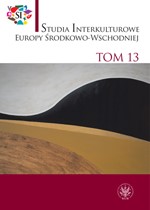Образовательная и кадровая политика царизма в Беларуси в 1860-е гг.
Educational and Personnel Policy of Tsarism in Belarus in the 1860s
Author(s): Walentina OstrogaSubject(s): History, Anthropology, Social Sciences, Sociology, Culture and social structure
Published by: Wydawnictwa Uniwersytetu Warszawskiego
Keywords: educational policy; educational institution; teacher; secret schools; personnel issue; political security; elementary public school
Summary/Abstract: The article notes that the duality, inconsistency, and reactionarity of the educational policy of the tsarist government after the uprising of 1863–1864 wa slargely dictated by the desire to reduce Polish influence and accelerate the russification of the region. The Ministry of Public Education did not care so much about the dissemination of education as about protecting the public with“reasonable restrictions”. In accordance with its political and ideological goals,the network of parish schools expanded, the training of teaching staff was restrained, and strict control was established over the activities of teachers and their political trustworthiness. Tsarism formed a model of an “ideal” teacher:devoted to the church and the throne, tolerant, imperceptible, and obedient, who in his pedagogical activity was to follow the official course. There was a tendency to attract people from the central provinces of Russia who graduated fromtheological seminaries, as well as Orthodox priests, to fulfill teaching duties.
Journal: Studia Interkulturowe Europy Środkowo-Wschodniej
- Issue Year: 2020
- Issue No: 13
- Page Range: 54-71
- Page Count: 18
- Language: Russian

